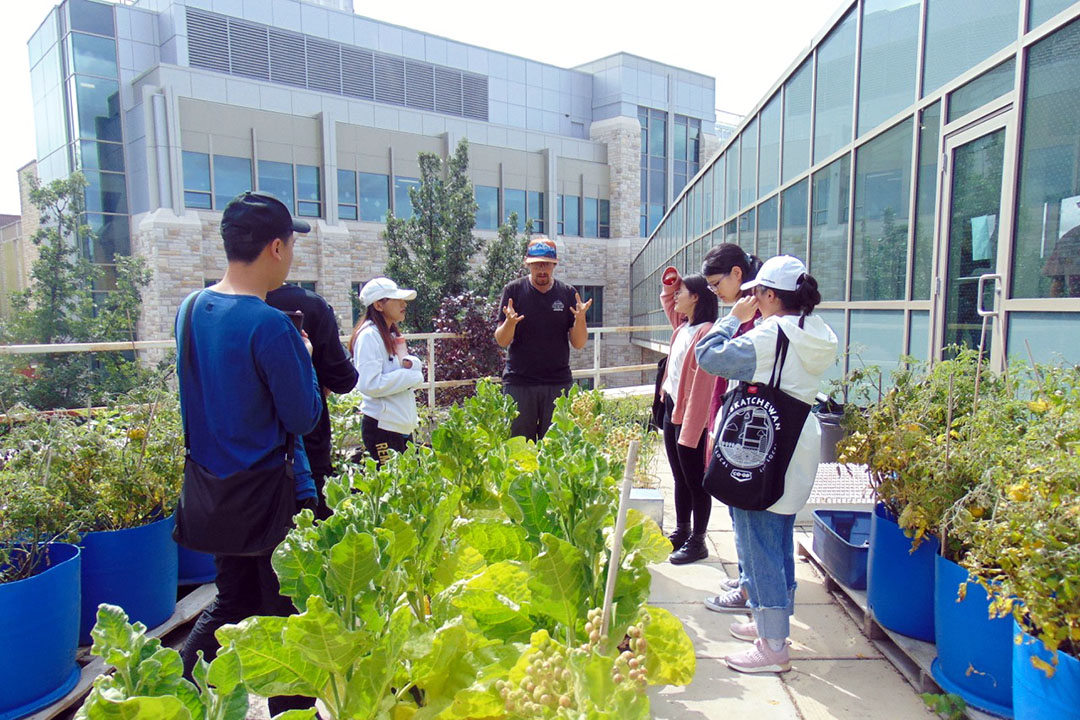
USask offers innovative English as a Second Language programming
“This is my first time in Canada. It is an amazing experience here at the University of Saskatchewan (USask),” said Zi Yao Xiao, one of the participants in the special groups program hosted by USask’s Language Centre (USLC) this year.
By Brett MakulowichAn agriculture undergraduate student from Southwest University (SU) in Chongqing, China, Xiao’s impressions of USask were echoed by visiting graduate student Wei Wang.
“What I like most about USask are the teachers, staff and the beautiful campus,” said Wang, a PhD student studying hydrology and water resources at Beijing Normal University (BNU) in China.
Xiao and Wang are part of the first cohorts of the SU Plant Sciences program and the BNU Water Sciences program. The cohorts are two of six special group programs that the USLC is hosting this year. Special group programs are typically three weeks in length and incorporate English as a Second Language (ESL) study, combined with professional or academic interest experiences that are tailored specifically for each group.
“I learned that there are the similar water resources issues in Canada and China and that there are actions we should take to protect our resources,” said Wang.
As part of their program, the BNU students toured the university’s multi-purpose slope testing facility, the smart water systems lab, the Toxicology Centre, and the Saskatoon wastewater treatment plant. They also attended lectures on remote sensing and ground water, climate extremes and environmental DNA/toxicology.
The plant sciences focus for SU students included touring the university’s phytotron and rooftop gardens as well as the Agriculture and Agri-Food Canada facilities, and attending lectures on pest control, plant diseases, weed management and Canadian plant sciences practices.
“Facilitating more special group programs is part of our internationalization strategy—the International Blueprint for Action 2025—to meet the needs of international students who wanted to come for a shorter period than the traditional study abroad term or full degree,” said Dr. Jim Lee (PhD), USask’s executive director, international, in the Office of the Vice-President, Research.
The USLC works with the International Research and Partnerships Office and colleges and departments to create high-quality short-term program opportunities that fulfil several key themes of the International Blueprint for Action. The four main pillars are: internationalizing learning experiences; diversifying our university community; strengthening our global impact through discovery; and growing our global citizenship and international community service.
“Special group programs are a great opportunity to showcase USask, Saskatoon and Canada to an international audience,” said Lee. “By hosting these groups, we can grow and diversify our own community, internationalize our campus and also give our visiting and on-campus students more opportunities to connect as a global community.”
Learn more about Special Group Programs
Learn more about the International Research and Partnerships Office

